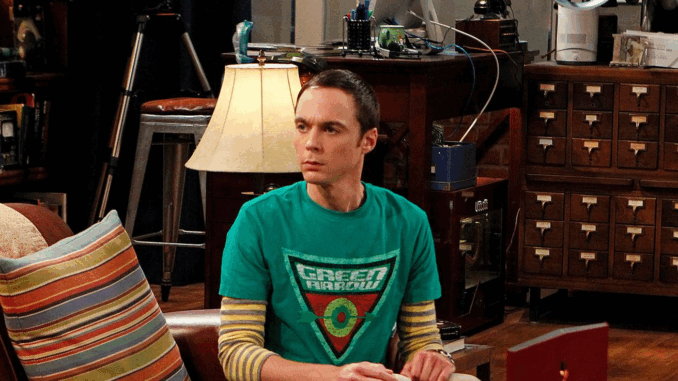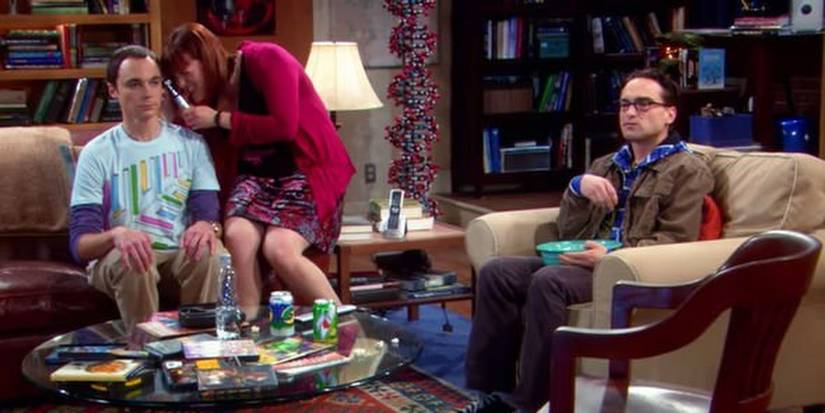
Young Sheldon is literally narrated by an older Sheldon, one of the many ways the prequel diverges dramatically from The Big Bang Theory. Yet a long-standing fan theory suggests that while TBBT lacks an explicit narrator, the series can be interpreted as being told through the perspective of one character in particular: Leonard.
The Big Bang Theory centers heavily on Leonard and Penny’s relationship, from their first meeting in the pilot to their controversial pregnancy storyline in season 12. Throughout the series, Leonard remains largely unchanged, seeing himself as the everyman surrounded by larger-than-life personalities—and the audience views him in much the same way. He functions as the quintessential audience surrogate.
On closer examination, many storylines align more coherently if one assumes the series is Leonard’s biased retelling. A prime example is the season 2 arc involving Dr. Stephanie Barnett. While Leonard is positioned as the lovable underdog, his actions often verge on manipulative and even morally questionable. That tension—the contrast between how events are framed and what actually occurs—is what makes Leonard feel like TBBT’s hidden narrator.
Dr. Stephanie’s Season 2 Arc Only Makes Sense From Leonard’s Perspective — Otherwise, He’d Be the Villain

In The Big Bang Theory season 2, episode 8, Howard Wolowitz invites Dr. Stephanie Barnett to help drive the Mars rover. When she crashes it, Howard turns to Leonard to take her home. The show doesn’t depict how Leonard wins her over, yet by the end of a brief car ride, they’re already making out.
The episode frames Stephanie and Leonard as equally guilty of betraying Howard. In reality, Stephanie had only just met him that night, whereas Leonard is supposed to be one of Howard’s closest friends. The show subtly justifies Leonard’s omission by portraying Howard as socially awkward and sometimes a creep in the early seasons.
Leonard is clearly doing something morally questionable, but he isn’t positioned as the villain — and that only works if the story is being told through Leonard’s eyes.
Stephanie proves to be a near-perfect girlfriend: Sheldon-approved and even capable of besting him. In season 2, episode 10, Sheldon repeatedly challenges Stephanie’s medical knowledge until she shuts him down with a fake larynx inflammation — what she dubs a “Sheldonectomy.”
Yet, despite Leonard’s admiration, Stephanie can’t truly be the perfect girlfriend for him. He is still emotionally invested in Penny, which leads him to manufacture a reason to panic about the relationship. When Penny and Sheldon point out that Stephanie has effectively moved in, Leonard seizes the opportunity to justify ending things.
Leonard risked his friendship with Howard for Stephanie, only to break up with her off-screen after episode 10. The breakup goes largely unexplained because it doesn’t fit Leonard’s larger narrative about his love story with Penny — a choice that further reinforces the idea that the story is being filtered through Leonard’s perspective.
Honestly, Everything in The Big Bang Theory Makes More Sense Through Leonard’s Eyes

When viewed through Leonard’s perspective, the exaggerated quirks of The Big Bang Theory suddenly become more understandable. Sheldon’s seemingly impossible behavior shifts from absurd realism to the lens of an exhausted roommate, seen as amplified and relentless. Howard’s sexual bravado also reads differently when seen as Leonard’s rival; his crude antics conveniently soften once both men settle into long-term relationships.
Even the abrupt personality shifts of Penny and Bernadette—especially regarding their pregnancies—feel less jarring through Leonard’s eyes. Leonard doesn’t fully understand women, which explains why the female characters sometimes seem underwritten or archetypal. As a somewhat anxious, self-centered narrator, he naturally frames events around how they affect him rather than adhering to strict continuity.
Many of the show’s inconsistencies across twelve seasons—family members who appear and then vanish, plotlines that don’t fully align—become easier to forgive if the series is interpreted less as flawless storytelling and more as Leonard’s selective, biased recollection. Viewed this way, The Big Bang Theory transforms into a richer, more coherent rewatch, filtered through the perspective of its audience surrogate and hidden narrator.
